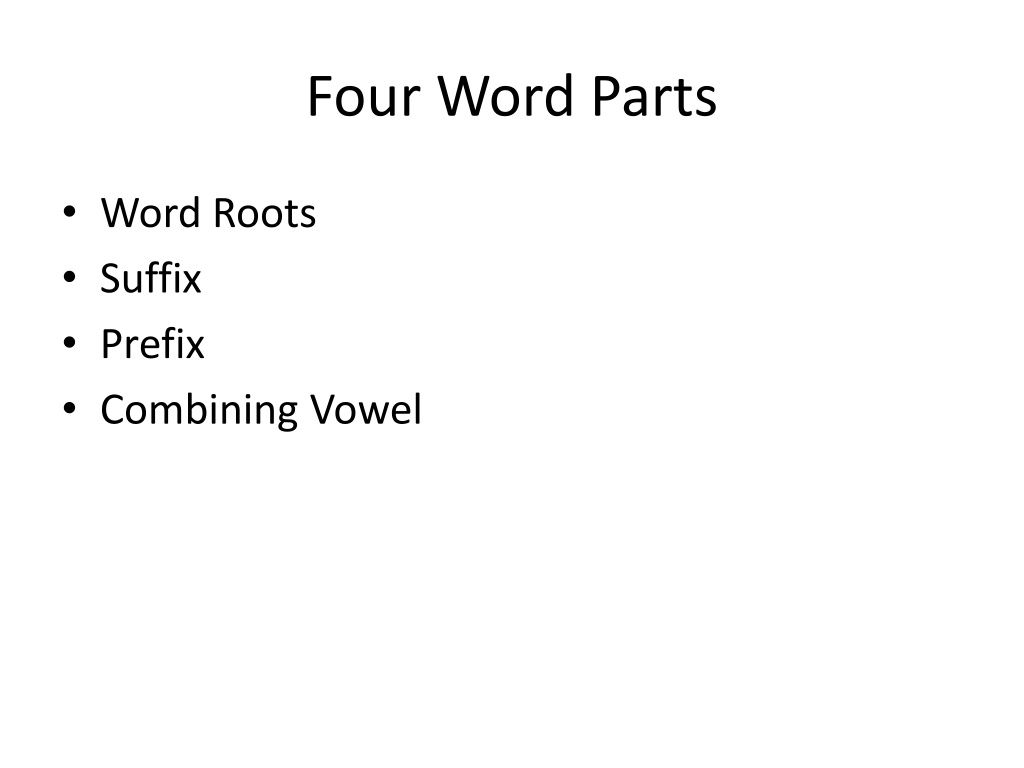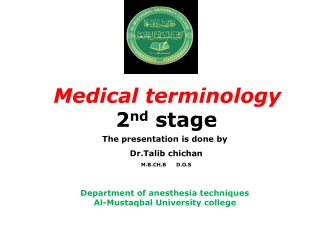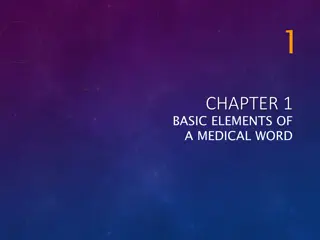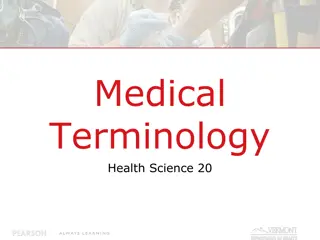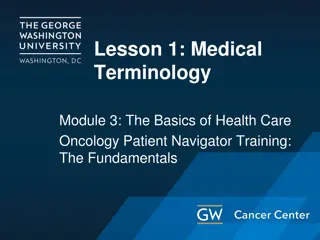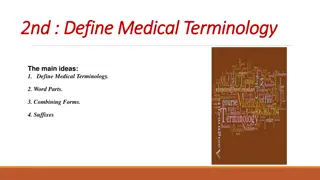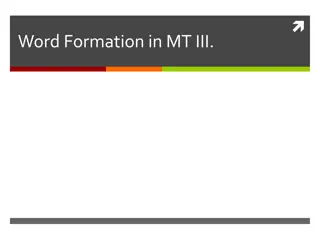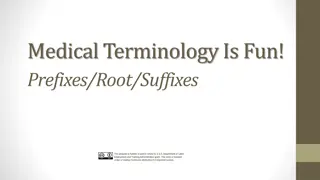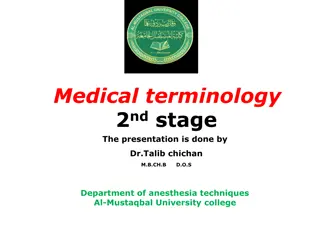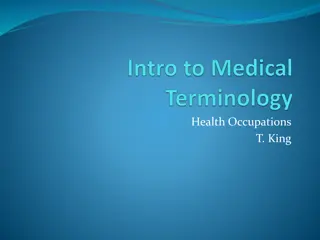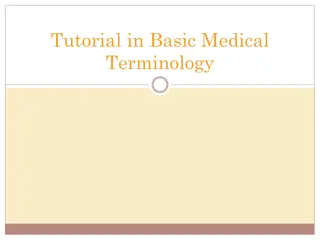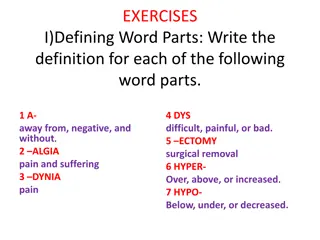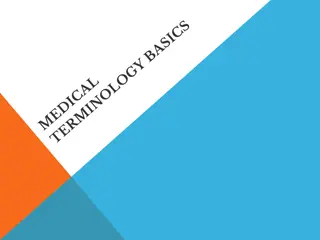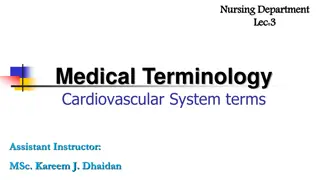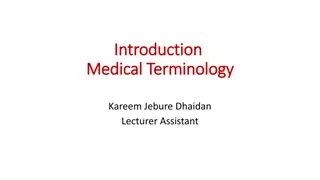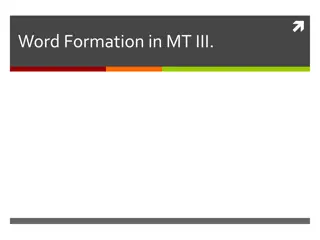Understanding Medical Terminology: Word Parts and Combining Forms
Learn about word roots, suffixes, prefixes, and combining vowels in medical terminology. Discover how to analyze and define medical terms by breaking them down into their components. Understand when to use combining vowels and how they facilitate pronunciation.
Download Presentation

Please find below an Image/Link to download the presentation.
The content on the website is provided AS IS for your information and personal use only. It may not be sold, licensed, or shared on other websites without obtaining consent from the author. Download presentation by click this link. If you encounter any issues during the download, it is possible that the publisher has removed the file from their server.
E N D
Presentation Transcript
Four Word Parts Word Roots Suffix Prefix Combining Vowel
Word Root Contains the core of the word; functional meaning Ex.: play/er play is word root arthr/itis arthr is word root hepat/itis hepat is word root
Suffix A word part attached to the end of a word root to modify meaning Ex.: play/er er is suffix hepat/ic ic is the suffix hepat/itis itis is the suffix Not all medical terms have a suffix
Prefix Word part attached to the beginning of the word root to modify it s meaning. Ex.: re/play re is the prefix sub/hepat/ic Not all medical terms have a prefix sub is the prefix
Combining Vowel Word part, usually an o used between two word roots OR between a word root and a suffix to ease pronunciation. The combining vowel is not used between a prefix and a word root. Ex.: therm/o/meter arthr/o/pathy
Combining Vowel Guideline #1 When connecting a word root and suffix; a combining vowel is not usually used. Even if vowels are present at the junction. Ex.: hepat/ic Suffix begins with I; no combining vowel is used
Combining Vowel Guideline #2 When conntecting two word roots; combining vowel is usually used even if vowels are present at the junction. Ex.: oste/o/arthr/itis O is the combining vowel, even though oste ends with an e and word root arthr begins with an a Combining vowels ease pronunciation; therefore, not all terms have combining vowels
Combining Form A word root with the combining vowel attached, seperated by a diagonal line. Ex.: arthr/o oste/ ven/o Combining form is NOT a word part; it is a presentation of two word parts
Analyzing and Defining Medical Terms To analyze medical terms, divide the medical terms into word parts, label each word part, and label the combining forms. Osteo/o/arthr/o/pathy 1. separate by slashes 2. label with abbreviations 3. label combining forms
Student Practice Analyze the following medical term: Osteopathy Arthritis Hepatitis Subhepatic Intravenous Arthropathy Osteitis
Hints! Read the meaning from the suffix back to the first part of the word. Sub/hepat/ic Drop the combining vowel before a suffix beginning with a vowel Gastricnotgastroic Retain the combining vowel between two roots in a word Oste/o/arthr/o/pathy
Hints! Spelling Many words are pronounced alike but spelled differently AND have different meanings Ileum part of the small intestine Ilium part of the pelvis, or hip bone
Hints! Pronunciation Words spelled correctly but pronounced incorrectly may be misunderstood Urethra urinary tract tube leading from the urinary bladder to the external surface Ureter one of two tubes leading from the kidney to the urinary bladder
